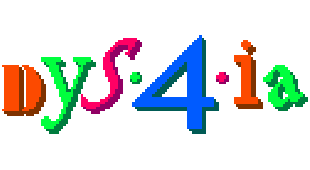Must Games Be Difficult?
One of the things I found interesting at GDC, was a series of mini-postmortems that included a review of Anna Anthropy and Liz Ryerson’s New Grounds game Dys4ia. Dys4ia is a bit of an interesting game which I briefly mentioned in this article, but truth be told there are people out there that question whether this form of narrative can even be considered a game.
It’s an interesting question to consider, and feel free to spend the 10 minutes it takes to play Dys4ia before you decide for yourself. When Anna Anthropy was making the game, she decided that she felt it was pointless to punish players for “bad” play, and that it was a narrative that needed to be told. This means that it really is more of an interactive film than it is a game, right? Anna in her postmortem condescends to state that it is only
““not a game” if you ask someone with a thick enough beard. raph koster called it “a powerpoint presentation.” by his definition, a game is a puzzle to be unraveled. it is a system to be understood. an enemy to be defeated. a country to be conquered. but DYSPHORIA is none of those things. what it IS, i need to believe, is a relatable human experience. and what a game actually is is A GAME IS AN EXPERIENCE CREATED BY RULES”
Which… sure… a game is an experience created by rules… but to be fair I think that when most people think of games, they don’t think of “peek-a-boo”. There is usually an expectation of a challenge, and even the possibility of losing associated with games. Given that it is not possible to lose this game, is it honest to call this a game? Does it even matter? I don’t think so. It’s a great interactive narrative, and I think that it’s kind of pointless to even bother with a label for it.
I do however feel that when it comes to game difficulty, there is a balancing act between artistic statement and difficulty. I think that in the case of Dys4ia, where there is a strong personal message that is attempting to be communicated to the audience, that an “easy” game works fine. You want people to experience that message in its entirety because really you’re using your game as a method of communication, not as a way to addict them and entertain them with teasing their desire to overcome challenge. On the other hand, I think that the more traditional “shallow” games such as say Ninja Gaiden, benefit from the aggravatingly difficult gameplay. The charm of it was the fact that you had to become an inhuman robot in order to beat the game. You were rewarded with a story as you played, but the game was it’s difficulty.
I saw an interesting conversation on Twitter last week involving Derek Yu (creator of Spelunky), Nels Anderson (lead designer on Mark of the Ninja), and Adam Saltsman (creator of Canabalt) which started when Derek made the comment that he…
Also tried Mark of the Ninja and was digging it… until I died and respawned a few seconds back, with no apparent loss. Sapped my motivation.
…which was followed up with a rather long discussion which essentially is about the question of whether it’s a satisfying experience to be challenged when playing a game. It seems that while there are still many gamers who want to be pushed, and want to be frustrated with a good challenge, it also seems that there are many who want to just enjoy an interactive experience. It’s a question of do you reward players for playing well, or do you punish them for playing poorly. Nels specifically says “I’m quite leery of holding progress hostage as a means of making a game more difficult.” When I made the comment that “games are moving much more toward rewarding good play, and abandoning the punishment of bad play”, Derek counters with the idea that “you can’t have “good play” if “bad play” has no consequences.”
I, for one, love a good challenge. I don’t tend to use save states in older console games if I emulate them, and I often find personal challenges to give myself when playing games (for example play through Final Fantasy VII without using Materia). But not everyone likes to play games with consequences. I think it’s an interesting concept to explore when designing a game. I think that there is a lot of things that SNES games like Super Metroid, Legend of Zelda A Link to The Past, Super Mario World, as well as the RPG’s such as Chrono Trigger, Final Fantasy IV, and Final Fantasy VI had incredibly right. This era of being able to save your game, yet still have some set-backs if you lost was great. Having checkpoints in the middle of a Mario level was brilliant as it worked with the rhythm of the level to allow for some challenge if a player died, but not forcing them to start *completely* over again. I don’t think it’s a good idea for every game to be Contra. As a developer I think it’s important to consider “just how difficult should your game should be?”, and why?




































